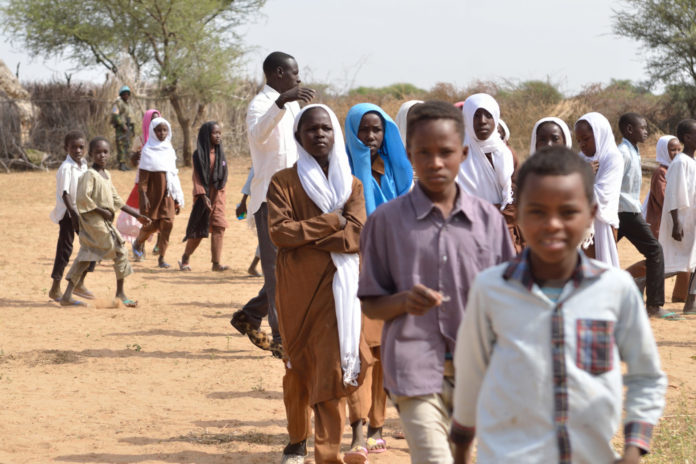Last week, the UN Human Rights Council concluded its 36th special session on Sudan, narrowly adopting a resolution to step up monitoring of the situation as the country teeters on the brink of civil war. From now on, the mandate of the independent expert will include detailed monitoring and documentation of all allegations of human rights violations and abuses since October 25, 2021. No African state had signed the letter requesting this emergency meeting.
The UN Human Rights Council, based in Geneva, Switzerland, held an emergency session on Sudan on Thursday, May 11. In his opening video address, the UN High Commissioner for Human Rights, Austria's Volker Türk, urged "all States with influence in the region to encourage, by all possible means, the resolution of this crisis". He also strongly condemned "the gratuitous violence, in which both sides have flouted international humanitarian law, including the principles of distinction, proportionality and precaution".
Initiative supported by few countries
The decision to hold a Special Session on Sudan follows a joint request from the United States, the United Kingdom, Germany and Norway. In a letter sent on May 5 to the Council President, the Czech Václav Bálek, the four states stated that "a Special Session is necessary due to the urgency of the human rights situation in Sudan following the ongoing hostilities in the country since April 15, 2023". The request, which had to be supported by 16 of the Council's 47 members in order to be accepted, was backed by 19 of them. There was also support from 32 observer states.
Extension of the mandate of the expert on Sudan
Adopted by 18 votes to 15, with 14 abstentions, the resolution proposes to strengthen the mandate of the UN Independent Expert on Sudan, Radhouane Nouicer, who was appointed in December 2022 to continue the Council's work to oversee the human rights situation since the military coup of 2021. The resolution extends the expert's powers to monitor and document rights violations committed in the context of the ongoing conflict. The former Tunisian diplomat first visited Sudan in February and met with the two now-opposed leaders, army chief Abdel Fattah al-Burhan and his deputy Mohamed Hamdan Daglo. He called for reform of the security services and accountability for those who have abused power.
Report requested on violations
The text also requests the UN Commissioner for Human Rights, Volker Türk, to present a report on human rights violations to the Council at its 55th session in February 2024, together with any further updates and reports he may deem appropriate as the situation evolves. It invites UN human rights officials to collaborate with local bodies such as the African Union and the League of Arab States.
Sudan's reaction
The Permanent Representative of the Republic of Sudan to the UN in Geneva, Ambassador Hassan Hamid Hassan, declared that his country's priority was to achieve a ceasefire and save lives. He recalled that regional efforts were underway to achieve a ceasefire and truce, including the negotiations held in Jeddah at the initiative of Saudi Arabia and the United States, as well as an initiative by the Intergovernmental Authority on Development.
Support for Sudan
Speaking on behalf of the African countries, Côte d'Ivoire's Deputy Permanent Representative, Allou Lambert Yao, stressed the importance of respecting Sudan's sovereignty and finding "African solutions to African problems". Sudan has received the support of several countries, including China and Arab countries.
Humanitarian situation
According to the Sudanese Minister of Health, more than 500 people have been killed and almost 5,000 wounded since violent fighting broke out in the Sudanese capital, Khartoum, between the army led by General Abdel Fattah al-Burhane and the paramilitary Rapid Support Forces (RSF) of General Mohamed Hamdane Daglo. Humanitarian organizations were forced to suspend their operations in the country in the early days of the fighting. Thousands of people have fled to neighboring countries in search of safety, but many are still trapped with little access to water, food and medical supplies. The Director-General of the World Health Organization (WHO), Dr. Tedros Adhanom Ghebreysues, said that several epidemics had been reported. According to the UN, some 900,000 people have fled their homes to areas spared by the fighting. Over 177,000 have taken refuge in neighboring countries, while the number of internally displaced persons exceeded 700,000 at the start of the week.


